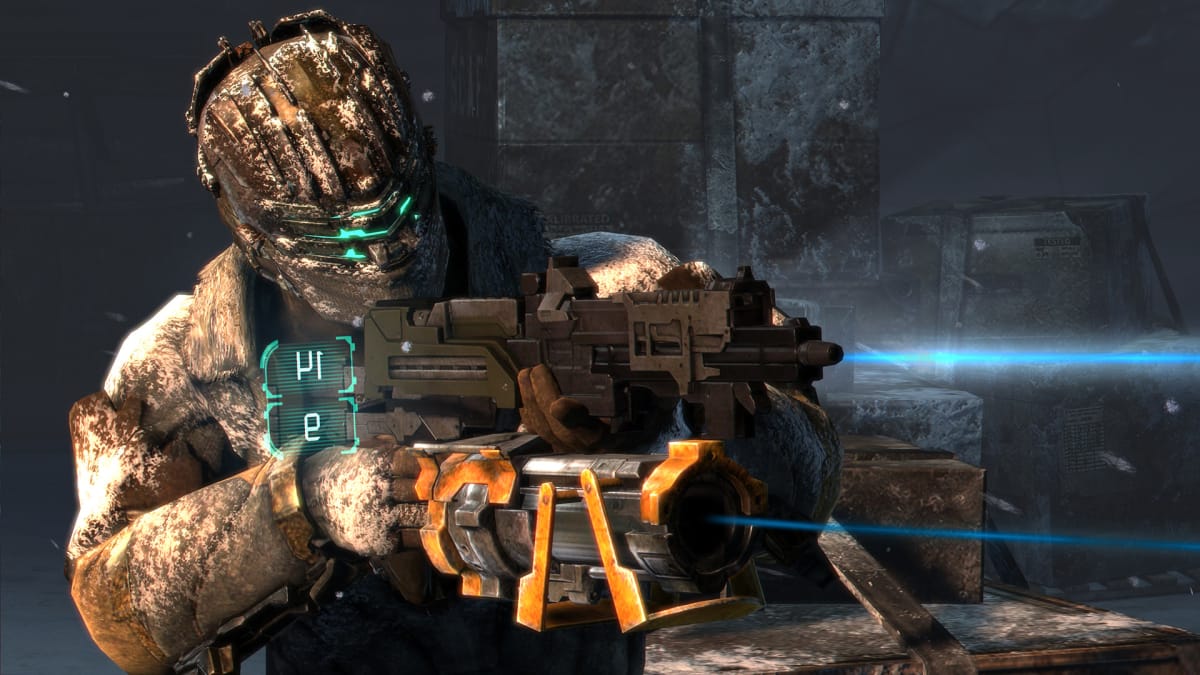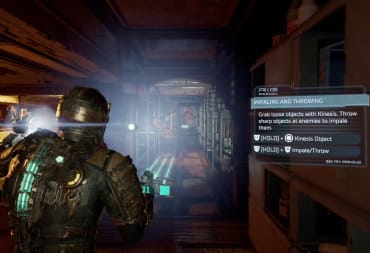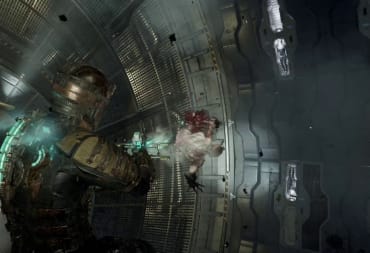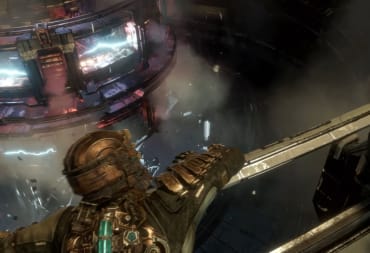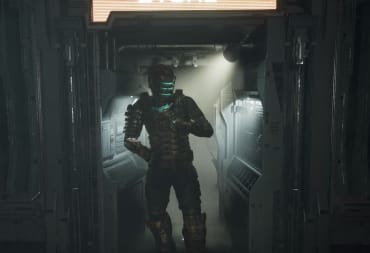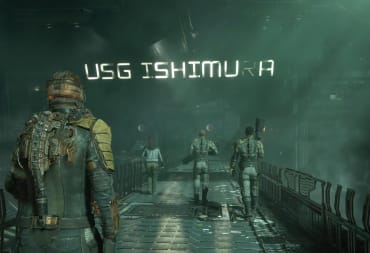Cynicism is easy whenever Electronic Arts is involved. The AAA third-party publisher is renowned for purchasing development studios, draining developers for every conceivable penny, and subsequently firing employees and closing down studios whenever they have fulfilled their usefulness. EA is notorious for acquiring, exploiting, and destroying the careers and dedication of the developers and studios that generate the company’s revenue, and while that might sound harsh, EA has more than earned that awful reputation. Developers like Pandemic Studios, Bullfrog Productions, Black Box Games, and several others were all victims of EA’s all-consuming nature over the years. For many active developers under the publisher’s wing, it only feels as if it’s a matter of time before they are on the chopping block as well. Hence why cynicism and EA go hand-in-hand.
This frame of reference is important to keep in mind in regards to the recently announced Dead Space Remake. Announced at the end of EA Play Live 2021 via a short teaser trailer, the remake, developed by Motive Studios, is a complete next-generation reimagining of the original classic 2008 action-horror game Dead Space (duh), and despite how the trailer lacked gameplay or a release date, the excitement surrounding this adventure is palpable. After all, it is a beloved series with a solid following, and the remake will be the first proper entry in the franchise since 2013’s Dead Space 3 (though the quality of that game is suspect). With an upcoming game, it is only natural to get hyped up for a new Dead Space experience, never mind EA’s sketchy history regarding all the studios it has canned. There is a new shiny Dead Space game on the horizon, and it would just be convenient to overlook EA’s game development negligence this one time.
But we really shouldn’t. Electronic Arts has shut down many game studios over the course of its history, and the Dead Space franchise is representative of this sad fact. The series was originally created by Visceral Games, a studio that is now defunct after dying by EA’s figurative sword back in 2017, and seeing as Dead Space was more or less synonymous with the developers at Visceral Games, any subsequent resurrection of the series would inherently be associated with the downfall of the original studio. Even though the remake is being developed by Motive Studios, a different development house that still exists (for now), Dead Space remains Visceral Games’ blood-soaked baby. It is their game and legacy.
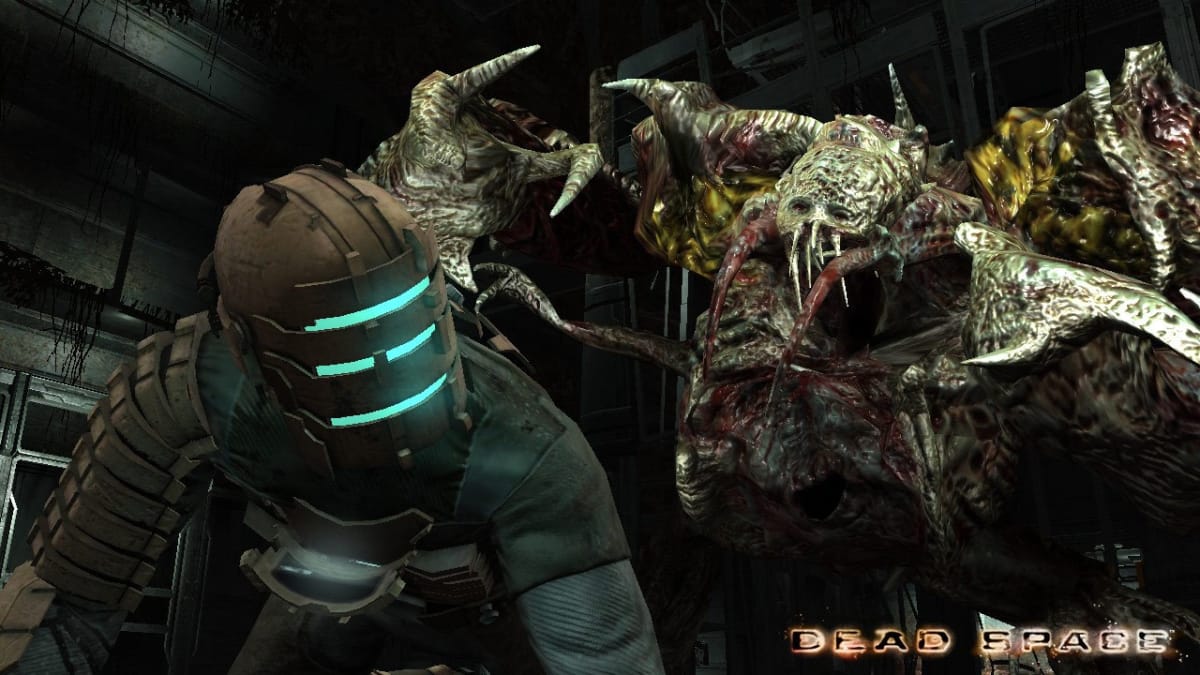
Dead Space and Visceral Games
Visceral Games wasn’t always known as Visceral Games. The developer was once known as EA Redwood Shores, and in the late '90s through the majority of the aughts, the company focused on developing licensed games. They were responsible for EA’s video-game tie-ins like The Lord Of The Rings: The Return Of The King, The Godfather, and several other adjacent titles for roughly a decade, and while this oeuvre is not the most flattering resume, the studio made it work. Yet EA Redwood Shores’ fortunes, however, forever changed after successfully pitching Dead Space to Electronic Arts. The game was like a more modernized Resident Evil 4 with newer gameplay intricacies (which makes sense because, according to a PCGamer interview with a few of the game's designers, the game was very much inspired by Resident Evil 4 and System Shock 2). It utilized a creative HUD (the health bar on the main protagonist’s back and the interactive menu system were nifty as hell), and it featured a combat system that emphasized severing the enemy's limbs instead of going for traditional headshots that most games do. Additionally, the game was clearly inspired by spacefaring monster sci-fi flicks like Alien and Event Horizon that conveyed a tense tone and a claustrophobic atmosphere.
It was pretty awesome, and through it all, Dead Space was really good and was rightfully praised by critics upon release. In fact, the title was such a breakthrough success that EA rebranded EA Redwood Shores into the more respectable name of Visceral Games, and while future titles by the developers were hit and miss (see Dante’s Inferno), Dead Space gave Visceral Games a studio-wide identity. It defined them.
2011’s Dead Space 2 further championed Visceral Games’ development credentials. Despite how the first game is a stone-cold classic, Dead Space 2 was an improvement on almost every level. The gameplay was more polished, the narrative stakes were larger, and the environments were simultaneously bigger all while maintaining the claustrophobic sense of tension present in the first game. It was a great linear single-player experience that garnered a wealth of critical praise and had strong word of mouth. The franchise seemed to be well taken care of.
But unfortunately, something was amiss. Electronic Arts wasn’t happy with Dead Space 2’s sales performance. Despite a plethora of good reviews and selling four million units (which was great considering it is a horror game and a relatively fresh IP), Electronic Arts was miffed with the sales of the sequel. The game didn't sell enough to offset its big blockbuster development and marketing budget of roughly $94 million (but that's an estimate. No official number was given). In a bad case of project mismanagement, EA had invested too much into the property. These were horror games with niche appeal that exist within a new IP. Given that it was a fresh franchise, it was absurd that EA expected Dead Space 2 to sell more than four million copies, and add on all the cross media properties like animated movies, comic books, and secondary games, EA should've budgeted far more responsibly. Dead Space and its sequel are terrific horror titles that play well. They were just incredibly good games that should have been financially budgeted accordingly. Nothing more.
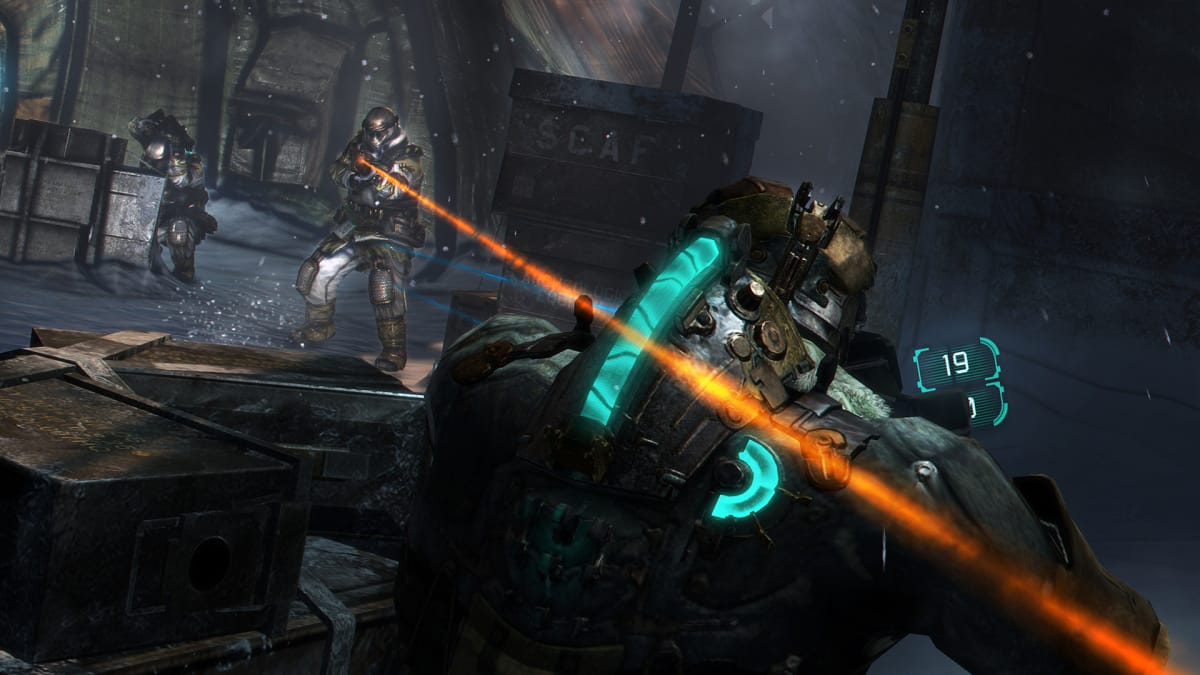
Dead Space 3 and the Death of Visceral Games
Still, Electronic Arts maintained unrealistically high expectations for the franchise. Looking to recoup investment, the company set overly lofty sales projections on 2013's Dead Space 3. Infamously, then EA President Frank Gibeau stated to CVG (via PCGamer), "In general, we're thinking about how we make this a more broadly appealing franchise, because ultimately you need to get to audience sizes of around five million to really continue to invest in an IP like Dead Space.”
This production philosophy was reflected by Dead Space 3 as a product. On a gameplay level, the game deviated from the franchise’s core design in order to be “more broadly appealing” as a way to appease EA. Dead Space 3 ditched the dark claustrophobic atmosphere of the two earlier games; it was more action-focused; the game effectively killed its sense of tension by adding campaign co-op into its narrative (co-op was a big trend at the time); and it was the first and only game in the series to have microtransactions that overall devalued the experience. Due to all of these factors, Dead Space 3 was conceptually flawed to its core, and it was a creative compromise that backfired on EA. The game did not meet sales expectations (though finding lifetime sales is difficult), and the changes deterred fans of the first two games (like myself) from picking it up.
Visceral Games was never the same after Dead Space 3. They would go on to create games outside their realm of expertise like Battlefield: Hardline (you know, the one where you play as cops) and attempted to develop an Uncharted-style linear Star Wars title dubbed Ragtag that was led by Naughty Dog alum Amy Hennig (but this project was never realized). As reported in a Kotaku exposé, Ragtag was cancelled in 2017, and Visceral Games closed soon afterward, joining the ranks of several other development houses that EA has binned in the past.
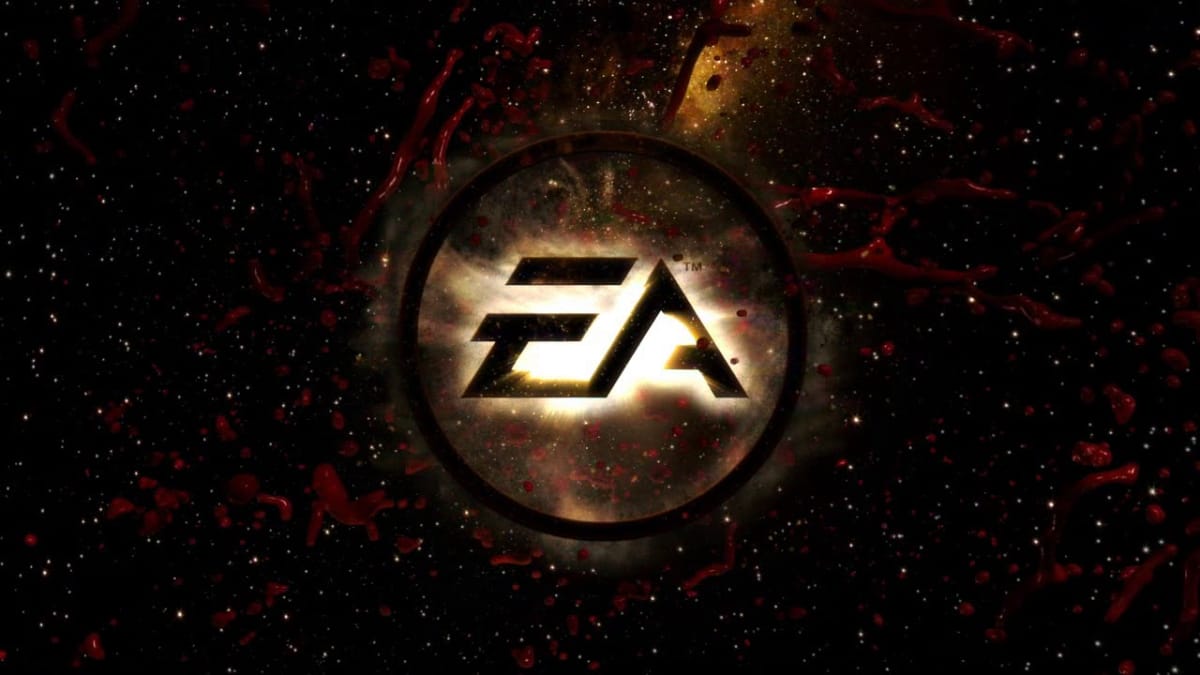
Electronic Arts and Single-Player Experiences
Visceral Games’ closure and Ragtag’s cancellation were symbolic. Over the past five years, EA, like much of the third party triple A industry, pivoted to almost exclusively developing online multiplayer games and live services meant to hook players long term (albeit with mixed results), and Visceral Games’ and Ragtag’s demise highlighted this new company-wide reality. At EA, linear narrative-driven games were a thing of the past. Sure, the company release a single-player adventure every now and then like Respawn Entertainment’s Star Wars Jedi: Fallen Order or Bioware's Mass Effect Andromeda, but as of late, the company is mostly known for games like Battlefield 1, Star Wars Battlefront 2, Apex Legends, and Anthem. As a publisher, EA almost exclusively creates online multiplayer titles and live services, and judging by the company’s output alone, linear games like Dead Space were outdated.
This belief was reflected by EA's own statements as well. EA assumed that the audience for single-player narrative-driven games wasn’t big enough. After Ragtag’s cancellation, EA stated (via Kotaku), “In [Ragtag’s] current form, it was shaping up to be a story-based, linear adventure game. Throughout the development process, we have been testing the game concept with players, listening to the feedback about what and how they want to play, and closely tracking fundamental shifts in the marketplace. It has become clear that to deliver an experience that players will want to come back to and enjoy for a long time to come, we needed to pivot the design.”
EA CFO Blake Jorgensen echoed this sentiment in a different statement. Stated during a presentation at the Credit Suisse 21st Annual Technology conference (via Dualshockers), “[Ragtag looked like a] much more linear game, that people don’t like as much today as they did five years ago or 10 years ago.”
In other words: EA believed single-player and story-driven games were no longer as viable. With Visceral Games shutting its doors and Ragtag placed behind crime-scene tape, EA sent a message as to what games the publisher desired to make in the future, and these games didn’t include Dead Space 4 or other adjacent single-player projects that, to them, presented an investment risk. While Visceral Games’ closure and Ragtag’s cancellation are admittedly more complicated than just one or two quotes regarding story-driven games, EA’s own statements on the matter, its past investments, and its live service outputs speak volumes.
This was the company’s culture… until it wasn’t.
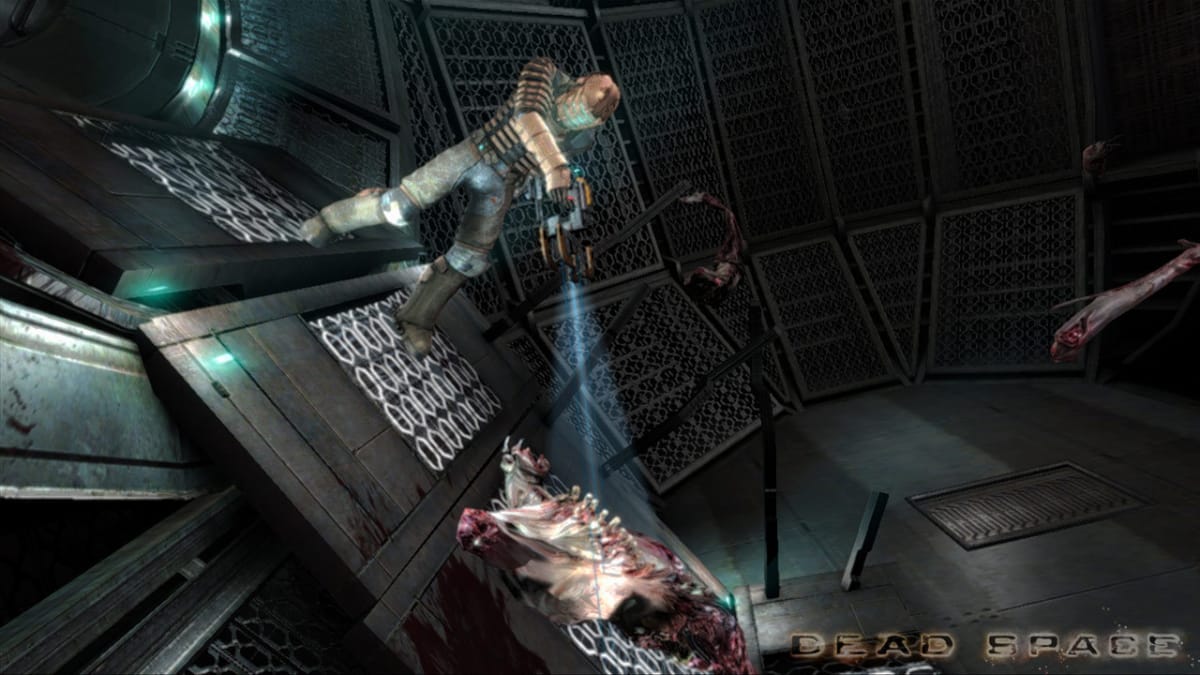
Dead Space Remake Isn't Very Risky
Dead Space Remake shows EA somewhat recommitting to linear single-player games. The game was proudly revealed towards the end of EA Play Live 2021, a presentation slot meant to garner hype for the given product and EA as a brand. With the teaser trailer, it was as if all the company’s past statements just four years prior regarding the obsolescence of narrative-driven games and solo adventures were a fib. EA clearly misjudged the market (or worse: they lied) and took a corporate mulligan because despite what EA said after Visceral Games’ closure, there clearly is a market for linear story-driven games like Dead Space. If there wasn’t, then the company wouldn’t be remaking Dead Space.
EA is likely hoping that Dead Space fans can overlook its past discretions. With Dead Space Remake, Motive Studios and EA are clearly aiming to recapture the magic within the original games; some of the gameplay will be improved (see: the zero-gravity sections); and the game won’t feature any of the in-game monetization that torpedoed Dead Space 3. The company clearly wants players to forgive and forget, yet EA’s flip-flop isn’t just an innocent mistake. In its treatment of Visceral Games, EA devalued its own products, and even more importantly, many people’s livelihoods were ruined by its shortsighted decisions. With Dead Space 3, EA shoehorned co-op and microtransactions into the game in order to broaden its appeal and recoup the investment, and with the closure of Visceral Games, around 80 developers were out of work. These decisions weren't harmless to both the games it produced and the people who made them, yet EA expects fans to applaud Dead Space Remake after everything the publisher did to derail Dead Space 3's overall quality and how it harmed Visceral Games as a development studio? Hard pass.
Furthermore, Dead Space Remake isn’t even much of a monetary risk. For several reasons, the game is relatively a safe financial bet despite all the nonsense EA spouted about the nonviability of linear single-player games in the past. Proving that there is an audience for Dead Space Remake, EA’s narrative-driven title Star Wars Jedi: Fallen Order was a big financial success; subpar live services like Bioware’s Anthem never took off; Dragon Age 4 will reportedly be a single-player game despite how it initially featured unnecessary multiplayer elements; and Capcom’s Resident Evil remakes (Resident Evil 2 in particular) have proven wildly successful, even though they too are the type of single-player story-driven games that EA purveyed as outdated just a few years ago.
Given all these reasons (and likely several others we don’t know about), Dead Space Remake makes sense as a product. After all, EA is the Burger King of game development. Over the past decade, the company has mostly relied on riding marketplace trends rather than taking its own risks. EA reacts to what other publishers are creating rather than striking out on its own. A few years ago, almost every game the company released qualified as a multiplayer title or a live service, but after games like Anthem failed and other publishers like Capcom proved there was still an audience for linear survival horror games and remakes, EA promptly changed its tune. Its belief regarding the nonprofitability of a game like Dead Space was proven demonstrably false. Single-player games like Dead Space can exist and make a profit. They just have to be budgeted accordingly.
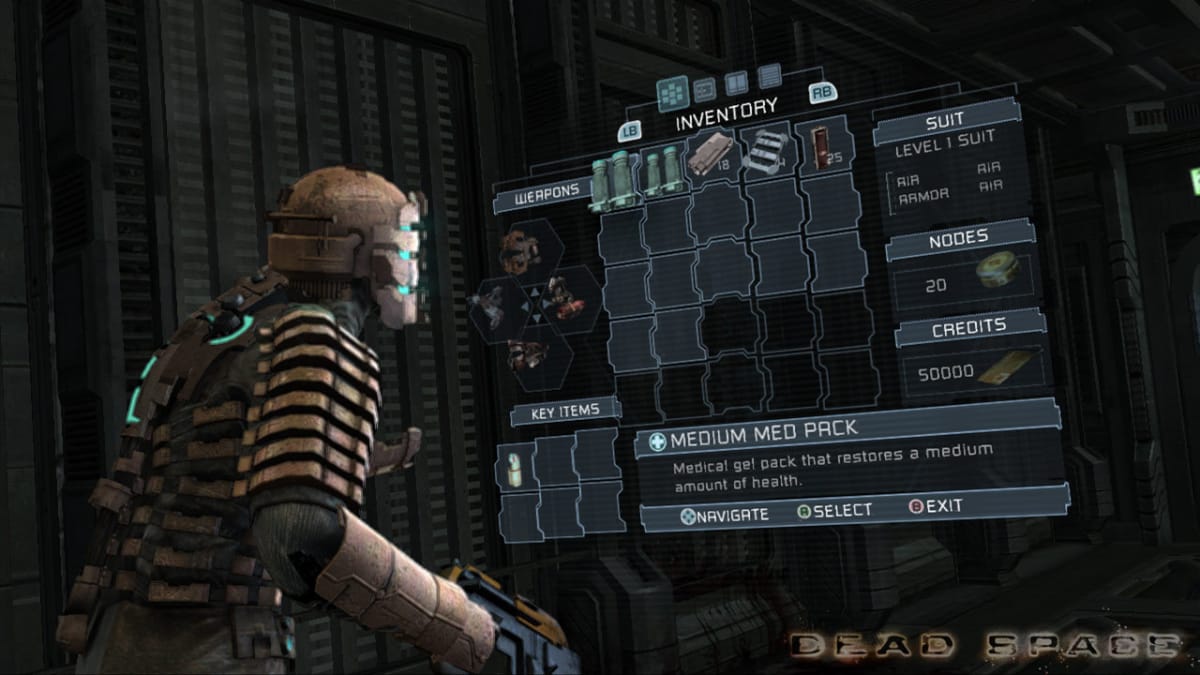
It's Not The Same
EA’s recommitment to the Dead Space IP honestly just leaves me feeling sour. While the remake has a chance to achieve greatness on a technical and design level, EA’s cavalier attitude surrounding the IP and how it carelessly closed Visceral Games cannot be overlooked. Dead Space Remake represents EA’s inability to handle a well-regarded gaming series, and its failure to respect the dignity of those who worked on it. It tells a story of a publisher attempting to capitalize on the latest horror remake trend even though the game’s very existence runs counter to its business regimen from just a few years ago. With Dead Space Remake, EA is attempting to finally profit from a golden franchise that it has bungled in the past, but despite owning the IP, EA can't fully fix its past mistakes. It can't fix Visceral Games.
Dead Space Remake doesn’t qualify as being a revival. Sure, EA has defibrillated Dead Space’s dead corpse eight years after the company murdered it, but this is not a franchise resurrection. A revival implies that Dead Space was brought back to life, but without Visceral Games at the helm, any sort of series resuscitation is incomplete. Dead Space as a brand may live again, but much like all the other studios EA felled, Visceral Games itself remains dead.
Have a tip, or want to point out something we missed? Leave a Comment or e-mail us at tips@techraptor.net
